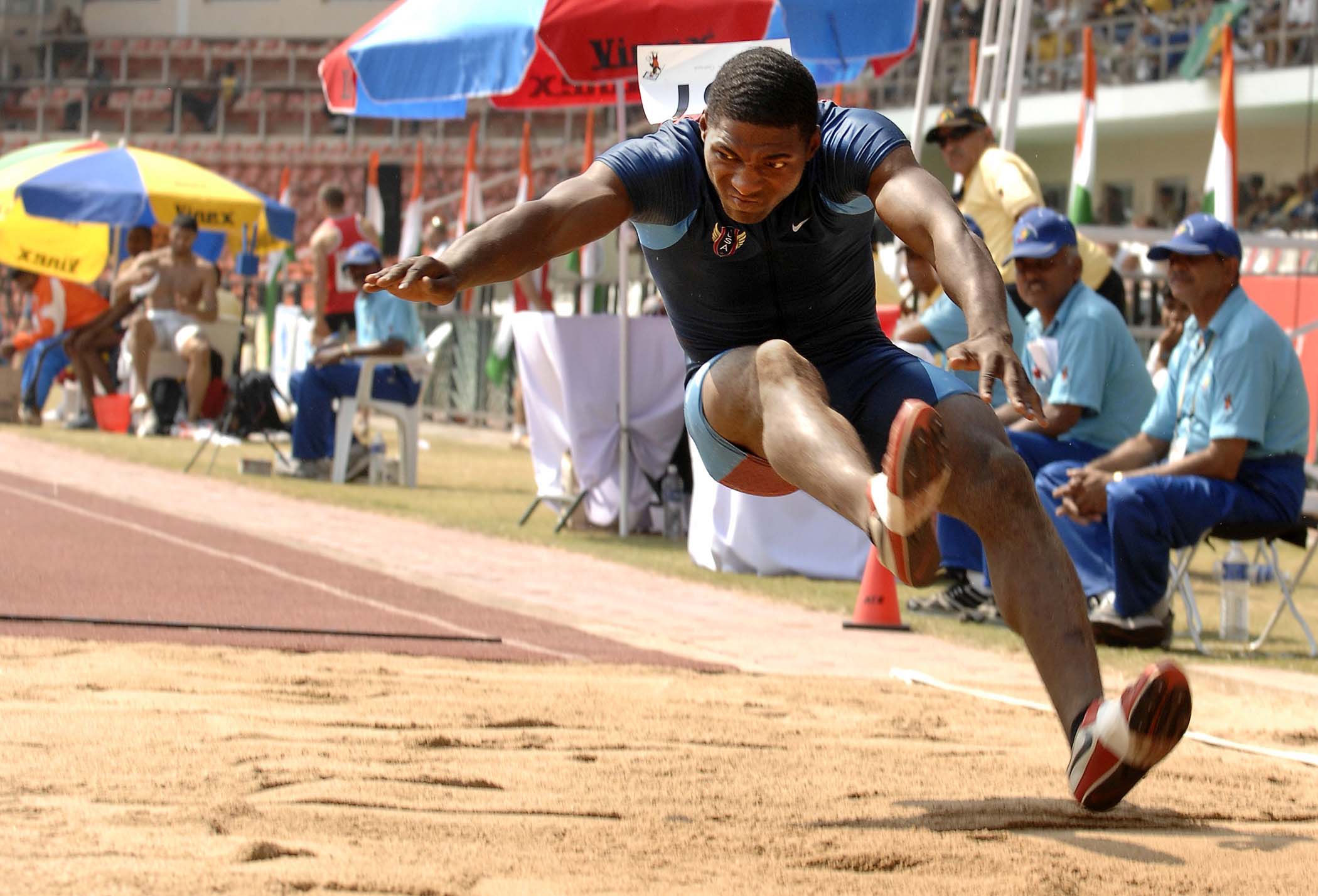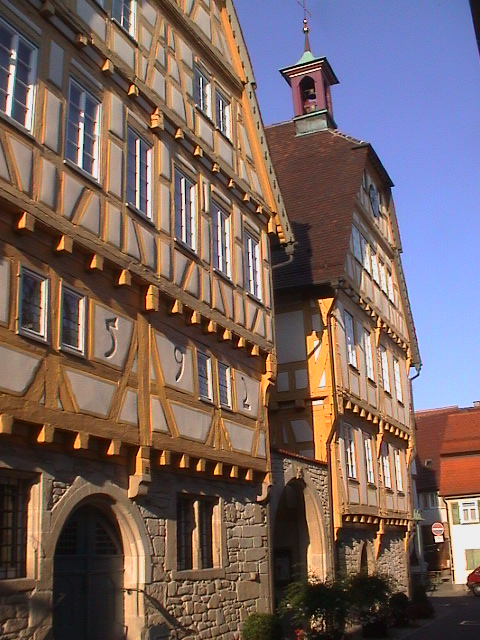|
Jörg Klocke
Jörg Klocke (born 25 January 1960) is a retired West German long jumper. He finished seventh at the 1980 European Indoor Championships in Sindelfingen. He became West German champion in 1982, representing the sports club TV Wattenscheid. His personal best jump was 8.09 metres, achieved in July 1982 in München Munich ( ; german: München ; bar, Minga ) is the capital and most populous city of the German state of Bavaria. With a population of 1,558,395 inhabitants as of 31 July 2020, it is the third-largest city in Germany, after Berlin and Ha .... References 1960 births Living people West German male long jumpers TV Wattenscheid athletes West German Athletics Championships winners {{Germany-longjump-bio-stub ... [...More Info...] [...Related Items...] OR: [Wikipedia] [Google] [Baidu] |
West Germany
West Germany is the colloquial term used to indicate the Federal Republic of Germany (FRG; german: Bundesrepublik Deutschland , BRD) between its formation on 23 May 1949 and the German reunification through the accession of East Germany on 3 October 1990. During the Cold War, the western portion of Germany and the associated territory of West Berlin were parts of the Western Bloc. West Germany was formed as a political entity during the Allied occupation of Germany after World War II, established from eleven states formed in the three Allied zones of occupation held by the United States, the United Kingdom, and France. The FRG's provisional capital was the city of Bonn, and the Cold War era country is retrospectively designated as the Bonn Republic. At the onset of the Cold War, Europe was divided between the Western and Eastern blocs. Germany was divided into the two countries. Initially, West Germany claimed an exclusive mandate for all of Germany, representing itself as t ... [...More Info...] [...Related Items...] OR: [Wikipedia] [Google] [Baidu] |
Long Jump
The long jump is a track and field event in which athletes combine speed, strength and agility in an attempt to leap as far as possible from a takeoff point. Along with the triple jump, the two events that measure jumping for distance as a group are referred to as the "horizontal jumps". This event has a history in the ancient Olympic Games and has been a modern Olympic event for men since the first Olympics in 1896 and for women since 1948. Rules At the elite level, competitors run down a runway (usually coated with the same rubberized surface as running tracks, crumb rubber or vulcanized rubber, known generally as an all-weather track) and jump as far as they can from a wooden or synthetic board, 20 centimetres or 8 inches wide, that is built flush with the runway, into a pit filled with soft damp sand. If the competitor starts the leap with any part of the foot past the foul line, the jump is declared a foul and no distance is recorded. A layer of plasticine is ... [...More Info...] [...Related Items...] OR: [Wikipedia] [Google] [Baidu] |
1980 European Indoor Championships In Athletics
The 1980 European Athletics Indoor Championships were held in Sindelfingen, a city in West Germany, on 1 and 2 March 1980. The championships were boycotted by East Germany. The middle-distance races were hand-timed. The host nation topped the medal table with 12 medals, including 5 golds, followed closely by Poland and the Soviet Union. Medal summary Men Women Medal table Participating nations * (4) * (11) * (13) * (1) * (9) * (1) * (5) * (14) * (4) * (3) * (11) * (1) * (4) * (15) * (5) * (3) * (21) * (1) * (4) * (29) * (10) * (6) * (8) * (1) * (42) * (8) References Results - menat GBRathletics.com at GBRathletics.com {{European athletics champs European Athletics Indoor Championships European Indoor Championships in Athletics European Indoor Championships in Athletics International athletics competitions hosted by West Germany European Indoor Championships in Athletics The European Athletics Indoor Championships is a biennial indoor track and field competitio ... [...More Info...] [...Related Items...] OR: [Wikipedia] [Google] [Baidu] |
Sindelfingen
Sindelfingen ( Swabian: ''Sendlfenga'') is a city in Baden-Württemberg in south Germany. It lies near Stuttgart at the headwaters of the Schwippe (a tributary of the river Würm), and is home to a Mercedes-Benz assembly plant. History * 1155 – First documented mention of Sindelfingen * 1263 – Sindelfingen was founded by Count Rudolf Scherer of Tübingen-Herrenberg * 1351 – The city was sold to Württemberg * Middle Ages – Notable weaving industry * 1535 – Entrance of the Protestant Reformation * 1944 – Stuttgart/Sindelfingen oil refinery bombed by the Oil Campaign of World War II * 1962 – Sindelfingen became a "Große Kreisstadt" (city with special governmental responsibilities within the larger county) * 1971 – Municipal annexation of the neighbouring villages Maichingen and Darmsheim * 1987 – The final traditional Sindelfinger Volksfest was held (the site was later required for a state-level horticulture and landscaping exhibition) The weaving industry surv ... [...More Info...] [...Related Items...] OR: [Wikipedia] [Google] [Baidu] |
TV Wattenscheid
TV Wattenscheid 01 Leichtathletik is a German sports club focused on athletics. Founded in 1971 in Wattenscheid, Bochum in the Western part of Germany, the club's history is linked to that of an older club, ''Turnverein Wattenscheid 01'', a gymnastics club in the city which was formed in 1901.TV Wattenscheid 01 - die Chronik . TV Wattenscheid 01. Retrieved on 2016-04-17. The club's main stadium for events and training is Lohrheidestadion. The athletics section of the club grew in the mid-1960s and received sponsorship from , a local businessman who was involved with t ... [...More Info...] [...Related Items...] OR: [Wikipedia] [Google] [Baidu] |
München
Munich ( ; german: München ; bar, Minga ) is the capital and most populous city of the German state of Bavaria. With a population of 1,558,395 inhabitants as of 31 July 2020, it is the third-largest city in Germany, after Berlin and Hamburg, and thus the largest which does not constitute its own state, as well as the 11th-largest city in the European Union. The city's metropolitan region is home to 6 million people. Straddling the banks of the River Isar (a tributary of the Danube) north of the Bavarian Alps, Munich is the seat of the Bavarian administrative region of Upper Bavaria, while being the most densely populated municipality in Germany (4,500 people per km2). Munich is the second-largest city in the Bavarian dialect area, after the Austrian capital of Vienna. The city was first mentioned in 1158. Catholic Munich strongly resisted the Reformation and was a political point of divergence during the resulting Thirty Years' War, but remained physically unt ... [...More Info...] [...Related Items...] OR: [Wikipedia] [Google] [Baidu] |
1960 Births
Year 196 ( CXCVI) was a leap year starting on Thursday (link will display the full calendar) of the Julian calendar. At the time, it was known as the Year of the Consulship of Dexter and Messalla (or, less frequently, year 949 ''Ab urbe condita''). The denomination 196 for this year has been used since the early medieval period, when the Anno Domini calendar era became the prevalent method in Europe for naming years. Events By place Roman Empire * Emperor Septimius Severus attempts to assassinate Clodius Albinus but fails, causing Albinus to retaliate militarily. * Emperor Septimius Severus captures and sacks Byzantium; the city is rebuilt and regains its previous prosperity. * In order to assure the support of the Roman legion in Germany on his march to Rome, Clodius Albinus is declared Augustus by his army while crossing Gaul. * Hadrian's wall in Britain is partially destroyed. China * First year of the '' Jian'an era of the Chinese Han Dynasty. * Emperor Xian o ... [...More Info...] [...Related Items...] OR: [Wikipedia] [Google] [Baidu] |
Living People
Related categories * :Year of birth missing (living people) / :Year of birth unknown * :Date of birth missing (living people) / :Date of birth unknown * :Place of birth missing (living people) / :Place of birth unknown * :Year of death missing / :Year of death unknown * :Date of death missing / :Date of death unknown * :Place of death missing / :Place of death unknown * :Missing middle or first names See also * :Dead people * :Template:L, which generates this category or death years, and birth year and sort keys. : {{DEFAULTSORT:Living people 21st-century people People by status ... [...More Info...] [...Related Items...] OR: [Wikipedia] [Google] [Baidu] |
West German Male Long Jumpers
West or Occident is one of the four cardinal directions or points of the compass. It is the opposite direction from east and is the direction in which the Sun sets on the Earth. Etymology The word "west" is a Germanic word passed into some Romance languages (''ouest'' in French, ''oest'' in Catalan, ''ovest'' in Italian, ''oeste'' in Spanish and Portuguese). As in other languages, the word formation stems from the fact that west is the direction of the setting sun in the evening: 'west' derives from the Indo-European root ''*wes'' reduced from ''*wes-pero'' 'evening, night', cognate with Ancient Greek ἕσπερος hesperos 'evening; evening star; western' and Latin vesper 'evening; west'. Examples of the same formation in other languages include Latin occidens 'west' from occidō 'to go down, to set' and Hebrew מַעֲרָב maarav 'west' from עֶרֶב erev 'evening'. Navigation To go west using a compass for navigation (in a place where magnetic north is the same dir ... [...More Info...] [...Related Items...] OR: [Wikipedia] [Google] [Baidu] |
TV Wattenscheid Athletes
Television, sometimes shortened to TV, is a telecommunication medium for transmitting moving images and sound. The term can refer to a television set, or the medium of television transmission. Television is a mass medium for advertising, entertainment, news, and sports. Television became available in crude experimental forms in the late 1920s, but only after several years of further development was the new technology marketed to consumers. After World War II, an improved form of black-and-white television broadcasting became popular in the United Kingdom and the United States, and television sets became commonplace in homes, businesses, and institutions. During the 1950s, television was the primary medium for influencing public opinion.Diggs-Brown, Barbara (2011''Strategic Public Relations: Audience Focused Practice''p. 48 In the mid-1960s, color broadcasting was introduced in the U.S. and most other developed countries. The availability of various types of archival storag ... [...More Info...] [...Related Items...] OR: [Wikipedia] [Google] [Baidu] |


